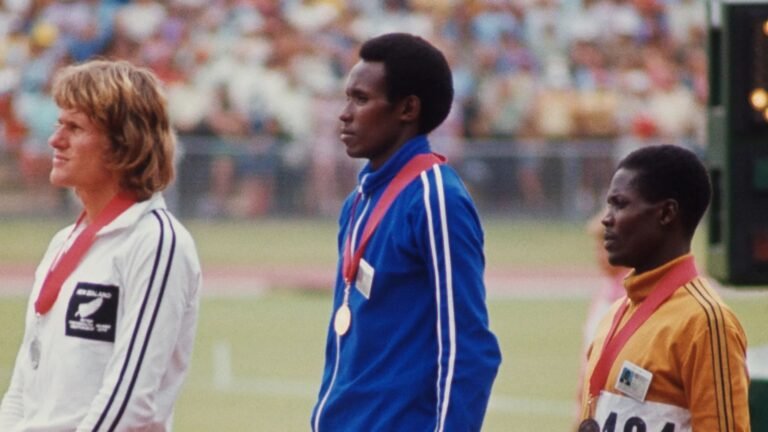On seventeenth Might 1975, 21-year-old Tanzanian middle-distance runner, Filbert Bayi, surprised the world with a efficiency that will go down in historical past. On the Worldwide Freedom Video games, held at Jamaica’s Nationwide Stadium, Bayi broke the eight-year-old world document within the mile run, leaving spectators in awe. However this race was greater than only a victory over time – it was a overcome fatigue, technique, and one of many hardest fields of rivals for the reason that Olympic Video games.
On the time, Jamaica and Tanzania had been deepening diplomatic ties. Simply the yr earlier than, in September 1974, Tanzanian President Dr. Julius Nyerere had visited Jamaica with a delegation for talks. Nyerere, a staunch advocate of Pan-Africanism, had been embraced by Jamaicans, who shared a lot of his socialist beliefs. Within the Seventies, these philosophies resonated deeply with the folks of Jamaica, making a cultural connection between the 2 nations.
A Legend within the Making
The yr earlier than his Jamaican triumph, Bayi had already made his mark on the world stage. On the 1974 Commonwealth Video games in Christchurch, New Zealand, he claimed gold within the 1500m closing, setting a brand new world document with a time of three:32.16. His unconventional fashion, often known as “front-running,” noticed him take the lead from the beginning and by no means look again. That day, 5 nationwide information fell, with Bayi main the cost. His daring technique earned him reward from consultants, who to at the present time contemplate the race as one of many biggest 1500-metre contests in historical past.
The Dream Mile in Kingston
Quick ahead to 1975, and Bayi as soon as once more discovered himself up towards a stacked subject at Jamaica’s Nationwide Stadium. The competitors included high athletes like New Zealand’s John Walker, American runner Marty Liquori, and the rising Irish star Eamonn Coghlan. The stadium, crammed with enthusiastic Jamaican followers, was buzzing with pleasure because the runners lined up for the mile race.
Bayi, true to kind, wasted no time in taking the lead. Inside moments, he had opened up a spot of 10 yards, sustaining his dominance by the primary half-mile, which he handed in a blistering 1:56.6. His rivals, led by Coghlan and Liquori, started closing in, however Bayi wasn’t about to allow them to steal the highlight. With the gang roaring in help, he discovered one other gear, keeping off the challenges with sheer dedication.
Within the closing stretch, with simply 280 yards to go, Bayi confronted a fierce problem from Liquori, who had overtaken Coghlan. However Bayi, spurred on by the electrified crowd, held off Liquori and surged to the end line. His closing time of three:51 flat set a brand new world document, breaking Ryun’s eight-year mark by a mere tenth of a second. The Jamaican crowd erupted, chanting “Africa, Africa, Africa!” as Bayi celebrated his historic achievement.
It was a second that will be etched in Jamaica’s sporting historical past – the primary, and to this point the one, senior world document set on Jamaican soil, in accordance with sports activities administrator Denzil Wilks.
After the Report
Later that yr in August 1975, the world document was once more damaged by John Walker who turned the primary man to run a sub-3:50 mile. Sadly Bayi’s probability to reclaim his document on the 1976 Montreal Olympics was thwarted by the African boycott of the Games, in protest towards New Zealand’s sporting ties with apartheid South Africa.
Nevertheless, Bayi’s connection to Jamaica didn’t finish with that 1975 race. In Might 1977, he returned to Kingston on the invitation of Jamaican monitor star Donald Quarrie to take part in one other meet. The occasion, that includes athletes from 18 nations, included stars like Coghlan, Cuban runner Alberto Juantorena, and American excessive jumper Dwight Stone. In solidarity with the African ban on New Zealand, Walker was not invited, however Bayi’s presence in Jamaica was a reminder of his indelible impression on the game and on Jamaican athletics.
Filbert Bayi’s 1975 world document run stays a shining second in each Jamaican and worldwide sports activities historical past – a testomony to his outstanding expertise.

